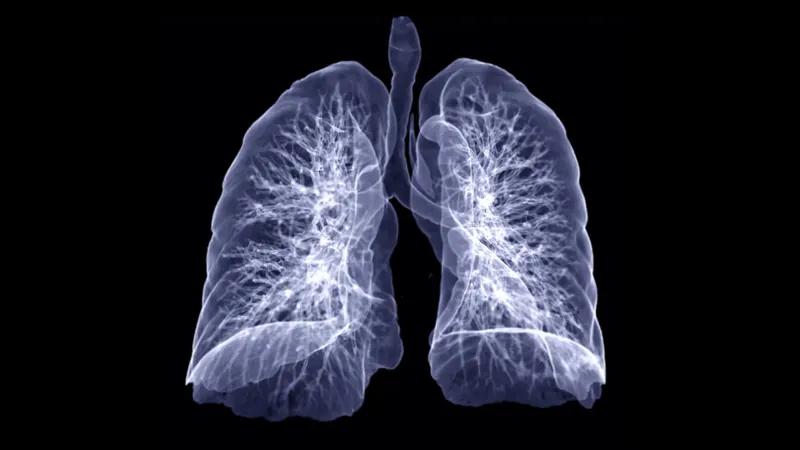
The Shocking Reason Why Asthma Returns Despite Powerful Treatments!
2025-06-27
Author: Wei Ling
The Unseen Battle: How Biologics Actually Work
Biological drugs, also known as biologics, have rapidly become a key weapon in the fight against severe asthma. These treatments are designed to help patients manage their symptoms effectively. However, a groundbreaking study from Karolinska Institutet reveals that the underlying impact of these drugs on the immune system remains a mystery.
Revelations from Recent Research
In an eye-opening study published in the journal Allergy, researchers analyzed blood samples from 40 asthma patients undergoing treatment with biologics. Surprisingly, instead of diminishing, certain immune cells linked to asthma inflammation increased in patients' blood during treatment.
According to Jenny Mjöberg, a professor involved in the research, this raises critical questions: "Biologics might not address the fundamental causes of asthma, despite offering symptom relief. Ongoing treatment may be essential to maintain control over the disease."
The Science Behind the Finding
The research was part of the larger BIOCROSS study, utilizing cutting-edge technologies like flow cytometry and single-cell sequencing to delve deep into immune cell function. Doctoral student Lorenz Wirth expressed astonishment at their findings - an increase in inflammatory cell levels during treatment could explain why asthma often resurfaces when therapies are reduced or halted.
What’s Next?
Despite biologics like mepolizumab and dupilumab being in use for under a decade, their long-term effects are still largely uncharted territory. The next phase of this research aims to analyze samples from patients with extended treatment histories and examine lung tissues to better understand how these immune cells behave in airway environments.
Backed by Science & Funding
This pivotal study received substantial support from a range of institutions, including the EU’s Horizon 2020, the Swedish Heart-Lung Foundation, and several other prestigious entities. As researchers continue to unravel the complexities of asthma treatment, understanding the long-term immunological impacts of biologics will be crucial in shaping future therapies.


 Brasil (PT)
Brasil (PT)
 Canada (EN)
Canada (EN)
 Chile (ES)
Chile (ES)
 Česko (CS)
Česko (CS)
 대한민국 (KO)
대한민국 (KO)
 España (ES)
España (ES)
 France (FR)
France (FR)
 Hong Kong (EN)
Hong Kong (EN)
 Italia (IT)
Italia (IT)
 日本 (JA)
日本 (JA)
 Magyarország (HU)
Magyarország (HU)
 Norge (NO)
Norge (NO)
 Polska (PL)
Polska (PL)
 Schweiz (DE)
Schweiz (DE)
 Singapore (EN)
Singapore (EN)
 Sverige (SV)
Sverige (SV)
 Suomi (FI)
Suomi (FI)
 Türkiye (TR)
Türkiye (TR)
 الإمارات العربية المتحدة (AR)
الإمارات العربية المتحدة (AR)